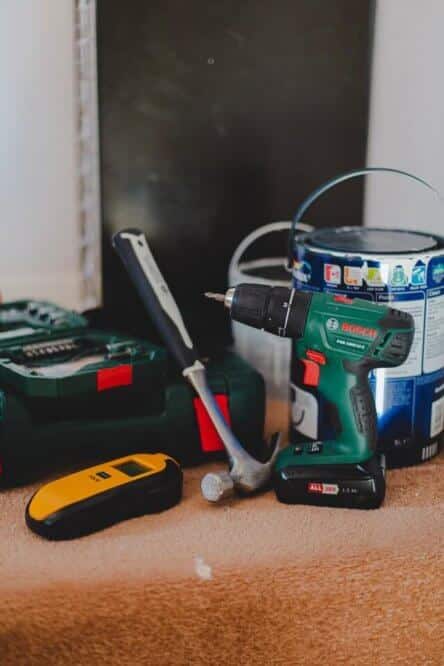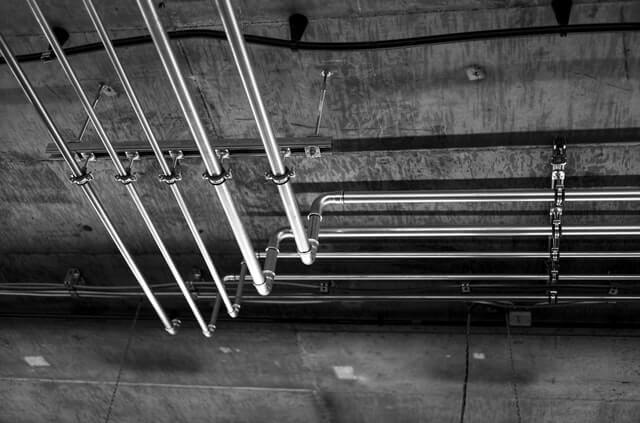When we talk about basement repair, we immediately think about the cold temperatures and high moisture levels. Should you insulate basement ceiling, and how will it affect those problems?
Truth be told – insulation usually comes with its own advantages and disadvantages.
Also, before you start this process, there are multiple things to consider, like cost and materials. Even though insulating the basement is not required, a lot of homeowners would say it resolved a bunch of issues for them.
Here, we’ve gathered all of the important information about basement ceiling insulation. Stick with us to find out more about this process and decide if it’s suitable for your basement.
Basement Ceiling Insulation Pros and Cons
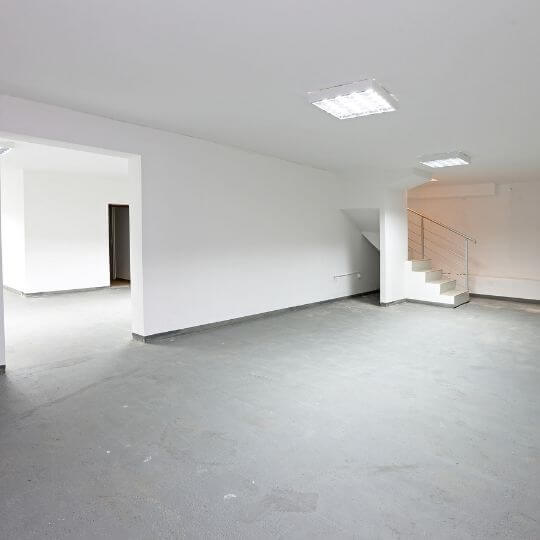
When we speak of insulation in the home, basements are usually the last place homeowners consider. Actually, the same goes for any project around the home.
This is because basements are usually not used as often. However, we all know how the issues coming from the basement can affect the whole house and vice versa.
It’s not necessary to insulate the basement ceiling, and most homeowners focus on the basement walls instead.
However, insulating the basement ceiling does come with many advantages. Most people opt for this process in order to increase the energy efficiency of their entire home.
But that’s not all! We have to take a closer look into all of the advantages & disadvantages of basement insulation you should consider.
Advantages of Insulating Basement Ceiling
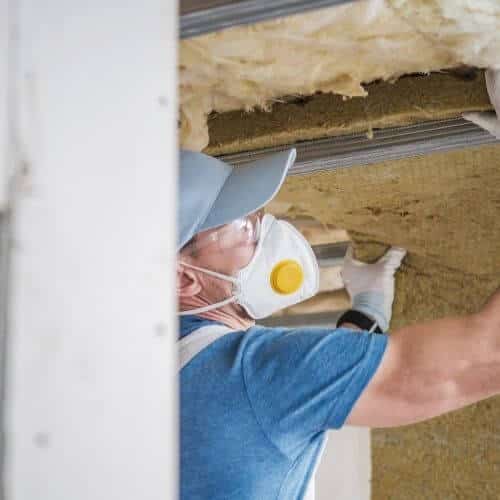
- Increased Energy Savings
Having an insulated basement ceiling will ensure all of the cold air isn’t accessing the upper home levels. It will also reduce the risk of burst pipes due to freezing. And if you have heating in the basement, the insulated ceiling can ensure the upper levels stay heated as well.
- Sound Proofing
Insulating the basement ceiling also ensures that the sound won’t leave the basement and affect the upper levels of the home. This is also true the other way around, as noise from the upper levels won’t affect the basement as much.
Soundproofing can be very beneficial in cases where basements are used as a functional room, such as an office or a gym area. It can also be beneficial if your basement produces noise because of the HVAC system or a washer.
- Improved Moisture Control
High levels of moisture in the basement are one of the most common issues homeowners face. Insulation is known to provide better control of the moisture levels of the room.
Basements without insulation commonly deal with leakages and/or yellow stains on the ceilings. Providing a basement with both wall and ceiling insulation is the best solution for this problem.
- Improved Comfort
Insulated ceilings of the basement provide better levels of comfort in the basement or in the house overall. This comes down to the combination of multiple different factors.
For example, ceiling insulation leads to better control of moisture and temperature levels of the whole house. Not only will the house be more energy-efficient, but it will also be more comfortable to live in it.
- Reduced Mold & Allergens
Basements are typically not used as often as the upper levels of the home. Even when they are, moisture is far more prevalent in this room than in the other ones.
This creates a perfect ground for dust, mold, mildew, and other allergens to develop, which can negatively impact the health of your family. Insulating the basement ceiling helps reduce this risk. [1]
Disadvantages of Insulating Basement Ceiling
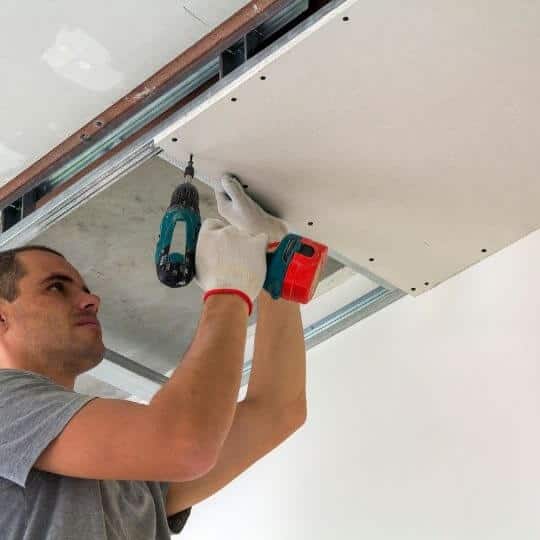
- Reduced Ceiling Height
Naturally, when you add from 8 to 15 inches of material onto the ceiling, this will reduce the amount of space left.
Providing the insulation for your basement ceiling also means that you need to compromise on the space of the basement. This may or may not be important to you, depending on what you plan to use the basement for.
Take some time to research the required basement space in your local area. Also, make sure to include the drywall in the measurements, as it can reduce the height even more.
- Reduced Airflow
Although insulating a basement ceiling can help you fight the appearance of different allergens, it can also do the opposite. What this process does is that it creates a strong separation between the basement and the rest of the house.
The trick is to include the ventilation – this ensures you can get the most out of the ceiling insulation. [2]
- Cost of Insulation
Insulating the basement ceiling first means that you usually need to double down on the materials used for insulation. This is the first and main reason why most homeowners stick to only insulating the basement walls below grade.
Also, some of these materials need to be replaced after some time. This means that you will most likely be buying these materials once again.
There are also some other expenses that you need to consider – so continue reading as we explain what those are.
- It’s Difficult To Do
Insulating your basement ceiling is rarely a DIY project. It’s a work best left to those who really know how the insulation works and how to make the best of it.
Each home can be different when it comes to the state of the basement ceiling. The expert in this field will know how to work around the difficult parts and how to replace old insulation.
If you still decide to do this yourself, just keep in mind that the ceiling needs to be ensured, set in place, and not sag. It can be difficult to achieve this when working on a ceiling due to gravity itself. Proper tools are needed as well.
Type of Insulation for Basement Ceiling
The first step to ensuring the best ceiling insulation in your basement is choosing the proper material. By doing this, you reduce the cost of the installation itself, as well as the need for additional repairs in the future.
There is a huge number of different insulation materials available on the market, and choosing the proper one may be difficult.
That is why we created this next short list of things to consider before deciding on a type of insulation material.
Things to Consider Before Insulating Basement Ceiling

Let’s take a closer look at the things to consider when buying insulation material:
- The Current State
The current state of your basement ceiling will in itself be an answer to “Should you insulate basement ceiling?”
The state of the basement ceiling will also help you choose the proper material. For example, a ceiling prone to dampness will not go well with fiberglass, as it will need replacement soon.
- Your Budget
A lot of people make the mistake of not wanting to spend a lot of money on an expert because plumbing can be expensive. However, if you do it yourself but do it poorly, you will have to pay for additional repairs.
It’s also best to focus on the function of the basement and the benefits you want the insulation to have. For example, if you want to regulate the temperature, focus on the best material for that.
- The Climate
When it comes to climate, homes within areas with extreme weather conditions should use thicker insulation.
Insulating the ceiling in the basement helps regulate the temperature inside the house. This goes both for extremely hot and extremely cold weather areas, where ACs or heating is often used.
- The Basement Function
The function of the basement will affect the choice of your insulation material in many ways.
This is the case if the basement is to be used as a functional area (such as gyms, offices, guest rooms, etc.). The height of the room needs to be considered, as well as how it will affect the aesthetics of that place.
- The Level of Difficulty
As we briefly stated before, installing the insulating materials onto the ceiling is not a small project. Usually, it requires some level of skill in order to adequately attach the materials to the ceiling.
If you’ve never done it before, chances are you’re going to have great difficulty fighting the gravity. Some materials like fiberglass and foam boards are less difficult to apply.
However, you may want to invite a professional or at least have someone to help you with this.
- Local Building Codes
Before doing this installation, you need to be aware of the local building codes and understand the R-values. [3]
There are usually certain demands of local building codes that you need to consider that also impact the material you’re going to use.
Choosing Material for Basement Insulation
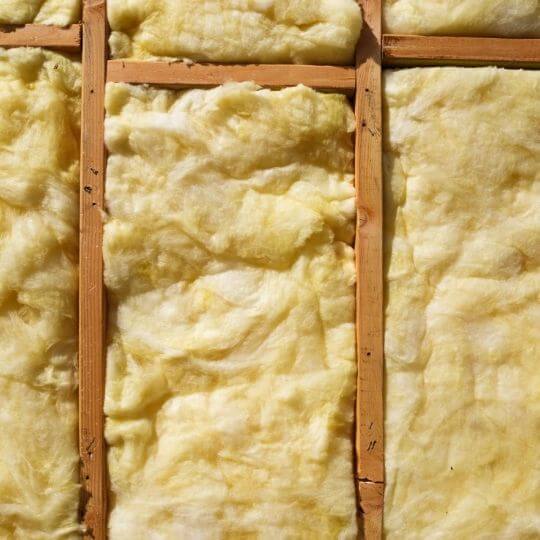
- Foam Boards
Foam board insulation is a great choice for basements with high levels of moisture and dampness. Because of this, it’s often used as a fiberglass alternative.
There are several different foam boards, like Polyso, Extruded Polystyrene, and Expanded Polystyrene. [4]
Each of them differs in thickness and R-values.
- Fiberglass
Fiberglass is usually on the cheaper side when it comes to insulation materials. It’s a blanket insulation material made from cellulose, cotton, and mineral wool.
These are natural fibers, and they usually come in rolls or batts.
The downside to fiberglass insulation is that it’s prone to damage in damp areas, where they often need replacement. The last thing you want is having to repair ceiling water damage as well.
Other than that, mineral wool insulation is proven to help regulate the temperature of homes. [5]
- Spray Foam
Spray foam insulation material consists of a form of isocyanate and polyol resin. The combination of these tho chemicals is exactly what causes the foam to appear when this material is applied.
It’s very resistant to water and can help you fight mold and mildew in your home. It has a high R-value and is also the best solution for hard-t-reach areas.
- Cellulose
Another quite inexpensive option is cellulose insulation. It’s great for regulating the temperature and also providing soundproofing.
It can be either spray-applied or dense-packed. While the wet spray is typically used in new construction, dense-packed cellulose is also used in existing basements.
However, one thing to have in mind with cellulose insulation is that it’s not as great at regulating airflow.
This can be a good thing if you want to draw more air in and out of your basement. However, if your basement is heated, this can lead to energy loss.
Should You Insulate Basement Ceiling or Walls?

If you have ever wondered about these two options, just know that it isn’t one-size-fits-all.
Choosing whether you should insulate your basement ceilings or walls is not an easy choice.
If you choose to insulate only the walls, you will protect the basement from energy loss due to external factors. If you only insulate the basement ceiling, you only ensure you won’t lose the heat through the upper levels of the house.
The best option is to insulate both walls and ceiling of the basement for best results. It’s also best to do these two types of insulations at the same time, if possible.
Cost to Insulate Basement Ceiling
The cost of basement ceiling insulation will greatly depend on the type of material you choose.
Usually, it can cost from $1.35 to $3.50 per square foot. Other than the material, the cost will depend on accessibility and job size as well.
For example, spray foam is easier to install, so it usually costs less. Fiberglass as an insulation material is not as costly, but it can cost more to install as the process can be more difficult.
This is because the cost of installation and labor count as well. Also, keep in mind that you’ll need to invest about $250 on protective garments if you choose to do this project yourself.
The Takeaway
So- Should you insulate basement ceiling or not?
Our final answer to this question is – yes, you should.
Insulating a basement ceiling can bring more benefits to your home, like improving energy efficiency, regulating the temperature, and improving overall comfort.
The worst downside to the basement ceiling installation comes down to the cost of installation. However, the benefits are huge, so it counts as an investment as it pays off in the long run.

Michael Davis is a heating & plumbing expert who currently works as independent contractor in SC. He also writes for Plumbertip.
For almost 10 years he worked on various plumbing tasks across South Carolina.
